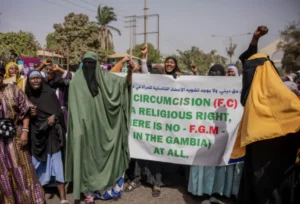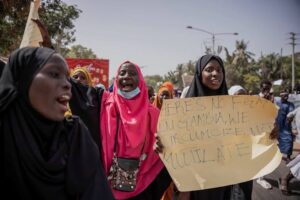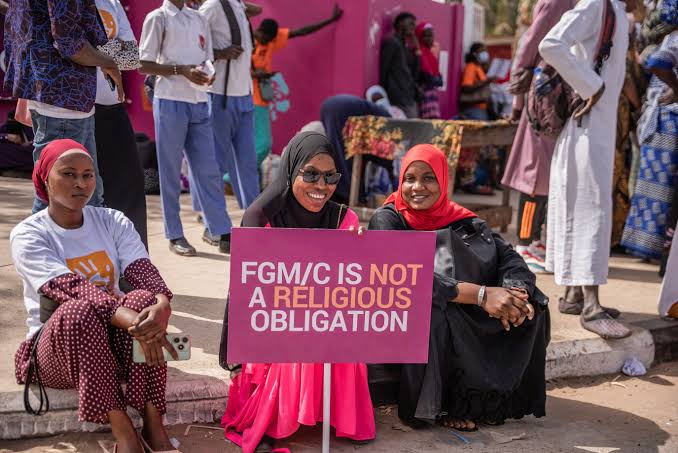In a contentious session on Monday, Gambian lawmakers engaged in heated debates over the prospect of overturning a ban on female genital mutilation (FGM), a practice that has persisted despite efforts to eradicate it.
The small West African nation imposed strict penalties, including steep fines and jail sentences, in 2015 to combat FGM, known for its severe health risks and violations of human rights. Despite these measures, the practice has continued to thrive, prompting renewed discussions within the Gambian parliament.
Lawmaker Almameh Gibba introduced a bill earlier this month seeking to repeal the ban, citing cultural and religious rights of citizens, particularly in a predominantly Muslim country like Gambia. If passed, Gambia would become the first country to reverse a ban on FGM, marking a significant departure from global efforts to eradicate the harmful practice.
Following a lively debate, lawmakers voted 42 to four to refer the bill to a parliamentary committee for further review, signaling the beginning of a potentially protracted legislative process. The committee is tasked with making amendments to the bill before it returns to the national assembly for a final vote, a procedure that typically spans at least three months.
Also, read: Kenyan Athlete Asbel Rutto Smashes Record to Claim Victory at Rome Marathon
Meanwhile, global organizations have raised alarm over the resurgence of FGM worldwide, with the United Nations Children’s Fund reporting a rise in the number of affected women and girls to 230 million, up from 200 million eight years ago. Africa remains the epicenter of the practice, with over 144 million cases, highlighting the urgent need for sustained efforts to combat FGM across the continent.
Advocacy group Equality Now stressed the importance of criminalization in the fight against FGM, noting that over half of the 92 countries where the practice is prevalent have enacted laws banning it. The group cautioned that reversing the ban in Gambia could undermine progress made in other countries and embolden proponents of FGM.
Gambia’s ban on FGM, enacted under former President Yahya Jammeh, has faced resistance, particularly since President Adama Barrow assumed office in 2017. Despite recent convictions of individuals for carrying out FGM, the Supreme Islamic Council has defended the practice as a religious virtue, adding a layer of complexity to the ongoing debate within parliament.
As members of parliament grapple with divergent viewpoints, the outcome of the deliberations will not only shape Gambia’s approach to FGM but also reverberate across the global landscape of efforts to eliminate this harmful practice.

